The impact of COVID-19 has been felt across the globe in a wide range of countries and very different environments. The pandemic has already affected countries in every region, making this a truly global situation where every country must take steps to prepare and respond.
The impact of COVID-19 has been felt across the globe in a wide range of countries and very different environments. The pandemic has already affected countries in every region, making this a truly global situation where every country must take steps to prepare and respond.
The pandemic will hit the most vulnerable people the hardest. The economic consequences for those in informal settlements will be long-lasting. As more and more countries suspend daily activities and restrict movement, day labourers and those in informal employment will lose their income. This can result in people being forced to leave their homes due to their inability to pay the rent. Without any social benefits, they will be unable to care for their families.
Secure tenure and housing have become the front-line defence against the Covid-19. According to UN Special Rapporteur on the right to adequate housing, home has rarely been more of a life or death situation. As governments worldwide are relying on people to stay home to prevent the spread of the virus, having secure tenure is crucial to be able to implement this. Governments must take measures to prevent forced evictions and to provide solutions for the homeless.
Some countries are introducing measures such as moratoriums on evictions due to rental and mortgage arrears; deferrals of mortgage payments for those affected by the virus; extension of winter moratoriums on forced evictions of informal settlements; and increased access to sanitation and emergency shelter spaces for homeless people.
Other measures are also required if the pandemic is to be addressed effectively. The Special Rapporteur calls upon governments to “cease all evictions; provide emergency housing with services for those who are affected by the virus and must isolate; ensure that the enforcement of containment measures (eg: curfews) does not lead to the punishment of anyone based on their housing status; provide equal access to testing and health care; and provide adequate housing which may require the implementation of extraordinary measures as appropriate in a state of emergency, including using vacant and abandoned units and available short-term rentals.”
She also warns of a “risk that such measures will enable global financial actors to use the pandemic and the misfortunes of many to dominate housing markets without regard for human rights standards” and she urges states to “prevent the predatory practices of institutional investors in the area of residential real estate.”
People and communities living in countries grappling with humanitarian emergencies face additional challenges related to the protection of their housing, land and property rights. With the emergence of new and more pressing priorities among governments, UN and humanitarian actors, funding and attention are being diverted from the protection of Housing, Land and Property (HLP) rights to other issues. HLP partners in the field report of people being forcibly evicted and displaced by criminal actors taking advantage of the COVID-19 disruptions.
Displaced people and living in makeshift shelters and using essential basic common facilities, such as toilets and cooking spaces are not only being more exposed to the virus but also to the risk of being stigmatized and evicted by host communities in the event of health outbreaks. Further, as occurred in other similar situations, displaced communities are also facing challenges in finding suitable burying grounds for a large number of deceased members, leading to further health challenges and grievances. At this time of crisis, there is the need of intensifying efforts for ensuring that temporary settlements are built on suitable and conflict-free land, well planned and adequately serviced.
Now, more than ever, collaboration and partnerships among many different sectors and actors are necessary. The work of Global Land Tool Network partners on housing rights, security of tenure and combatting forced evictions can help governments to develop effective policy measures and collaborative solutions in this respect.
Source https://www.ohchr.org/EN/NewsEvents/Pages/DisplayNews.aspx?NewsID=25727&LangID=E
Ibid.
Ibid.
The pandemic will hit the most vulnerable people the hardest. The economic consequences for those in informal settlements will be long-lasting. As more and more countries suspend daily activities and restrict movement, day labourers and those in informal employment will lose their income. This can result in people being forced to leave their homes due to their inability to pay the rent. Without any social benefits, they will be unable to care for their families.
What Are the GLTN Partners Doing to Respond to The COVID-19 Crisis?
The World Health Organization (WHO) declared COVID-19 a pandemic on March 11, pointing to more than 118,000 cases of the coronavirus illness in over 110 countries and territories around the world and the sustained risk of further global spread. GLTN partners are responding to the crisis with different initiatives around the world.
 Commonwealth Association of Surveying and Land Economy (CASLE)
Commonwealth Association of Surveying and Land Economy (CASLE)
The lockdown and containment measures have made it impossible for farmers to access their land and they are unable to effectively monitor the crop growth, weeds as well as possible interference
 The lockdown and containment measures have made it impossible for farmers to access their land and they are unable to effectively monitor the crop growth, weeds as well as possible interference from other quarters. To address this challenge, Prof. Gordon Wayumba of the Technical University of Kenya is developing an object-oriented platform that will enable all Kenyans to remotely access their respective land information using open-source software. The system is currently being piloted on 650 plots within Nairobi and will be rolled out at scale soon.
The lockdown and containment measures have made it impossible for farmers to access their land and they are unable to effectively monitor the crop growth, weeds as well as possible interference from other quarters. To address this challenge, Prof. Gordon Wayumba of the Technical University of Kenya is developing an object-oriented platform that will enable all Kenyans to remotely access their respective land information using open-source software. The system is currently being piloted on 650 plots within Nairobi and will be rolled out at scale soon.
 Kadaster International
Kadaster International
Kadaster continues to contribute to the 2030 agenda, and the sustainable development of land rights for all. Kadaster continues providing advisory services remotely, where possible. Kadaster is also using this time of crisis to contribute as much as possible to webinars, to develop MOOC’s, and to publish knowledge and experiences in Fit for Purpose Land

Kadaster continues to contribute to the 2030 agenda, and the sustainable development of land rights for all. Kadaster continues providing advisory services remotely, where possible. Kadaster is also using this time of crisis to contribute as much as possible to webinars, to develop MOOC’s, and to publish knowledge and experiences in Fit for Purpose Land Administration and Geospatial Information Management. Kadaster have also written a broader perspective of the crisis on the relationship between land tenure, spatial information and COVID-19 including the impact (such as rental tenure), response, recovery and preparedness. (Ref: https://www.gim-international.com/content/article/covid-19-the-land-administration-sector-and-spatial-information)
 Norwegian Refugee Council (NRC)NRC has been leading the Housing, Land and Property (HLP) Area of Responsibility (AoR) platform since 2016. In response to COVID-19, the HLP AOR have developed two “living” guidance tools that are being constantly updated with
Norwegian Refugee Council (NRC)NRC has been leading the Housing, Land and Property (HLP) Area of Responsibility (AoR) platform since 2016. In response to COVID-19, the HLP AOR have developed two “living” guidance tools that are being constantly updated with
 NRC has been leading the Housing, Land and Property (HLP) Area of Responsibility (AoR) platform since 2016. In response to COVID-19, the HLP AOR have developed two “living” guidance tools that are being constantly updated with inputs from members. The Housing, Land, and Property in COVID provides advocacy and programmatic guidance on HLP in Covid -19. Advocacy to secure housing during COVID-19 is a sample decree for the protection of housing rights during COVID-19. Meanwhile, HLP AOR members have raised a concern that, in the push to quickly build emergency health infrastructure such as testing facilities, quarantine units, expansion of settlements for decongestion, and burial sites, proper due diligence and community consultation on land rights is not being conducted. This gap increases the risk of a backlash against the medical workers and patients, as has already been witnessed in both COVID-19 and Ebola crises.
NRC has been leading the Housing, Land and Property (HLP) Area of Responsibility (AoR) platform since 2016. In response to COVID-19, the HLP AOR have developed two “living” guidance tools that are being constantly updated with inputs from members. The Housing, Land, and Property in COVID provides advocacy and programmatic guidance on HLP in Covid -19. Advocacy to secure housing during COVID-19 is a sample decree for the protection of housing rights during COVID-19. Meanwhile, HLP AOR members have raised a concern that, in the push to quickly build emergency health infrastructure such as testing facilities, quarantine units, expansion of settlements for decongestion, and burial sites, proper due diligence and community consultation on land rights is not being conducted. This gap increases the risk of a backlash against the medical workers and patients, as has already been witnessed in both COVID-19 and Ebola crises.
 International Federation of Surveyors (FIG)
International Federation of Surveyors (FIG)
The COVID-19 crisis has brought to the fore the importance of borders in managing global pandemics, particularly in redefining the expanding role of delimitations.

The COVID-19 crisis has brought to the fore the importance of borders in managing global pandemics, particularly in redefining the expanding role of delimitations. The surveying professionals have for a long time only concentrated on property boundaries and neglected the other delimitations emerging from public law such as construction zoning, protected areas, concession boundaries, political borders, distance lines etc. This gap is also evidenced by the lack of the following terminology in the FIG keywords: border, boundary, limit. FIG will now rework the ongoing development of a ‘Border Manifesto’ to include some insights gained from the COVID-19 crisis.
 Aalborg University
Aalborg University
In partnership with Namibia University of Science and Technology (NUST), the NELGA/ALPC project on ‘Land Governance in Southern Africa’ is developing a scoping study for each country in the region
 In partnership with Namibia University of Science and Technology (NUST), the NELGA/ALPC project on ‘Land Governance in Southern Africa’ is developing a scoping study for each country in the region (http://landsymposium.nust.na/). The scoping studies and the synthesis report will be used as a baseline for improving land governance in the region through research and capacity development activities. A workshop to discuss the draft strategy has been rescheduled for September 2020. Meanwhile, the LAND Journal has requested Prof. Stig Enemark to be the guest editor for a special issue on the Fit-For-Purpose Land Administration (https://www.mdpi.com/journal/land/special_issues/FFPLA) and is working with 50 potential authors that will be contacted as contributors to this special issue. A book will thereafter be published on the subject covering varying aspects and lessons learned from implementing FFPLA for providing secure land rights at scale.
In partnership with Namibia University of Science and Technology (NUST), the NELGA/ALPC project on ‘Land Governance in Southern Africa’ is developing a scoping study for each country in the region (http://landsymposium.nust.na/). The scoping studies and the synthesis report will be used as a baseline for improving land governance in the region through research and capacity development activities. A workshop to discuss the draft strategy has been rescheduled for September 2020. Meanwhile, the LAND Journal has requested Prof. Stig Enemark to be the guest editor for a special issue on the Fit-For-Purpose Land Administration (https://www.mdpi.com/journal/land/special_issues/FFPLA) and is working with 50 potential authors that will be contacted as contributors to this special issue. A book will thereafter be published on the subject covering varying aspects and lessons learned from implementing FFPLA for providing secure land rights at scale.
 Netherlands Academy on Land Governance for Equitable and Sustainable Development (LANDac)
Netherlands Academy on Land Governance for Equitable and Sustainable Development (LANDac)
LANDac recognizes that COVID-19 and the measures taken worldwide to curb the pandemic will
 LANDac recognizes that COVID-19 and the measures taken worldwide to curb the pandemic will have an impact on land rights and land governance institutions. The academy has launched the ‘Online Hub: Land Governance and the COVID-19 Pandemic’ to help create an inventory of the first observations and concerns present with the land governance community as well as an overview of recently released articles, blogs and other resources on the impact of the current crisis on land governance. LANDac is calling out for contributions to the online hub through filling out of their ‘Quick-scan Online Survey: Land Governance and the COVID-19 Crisis’, writing a blog in their ‘Blog Series: Land Governance and the COVID-19 Pandemic’ and sharing relevant resources (landac.geo@uu.nl).
LANDac recognizes that COVID-19 and the measures taken worldwide to curb the pandemic will have an impact on land rights and land governance institutions. The academy has launched the ‘Online Hub: Land Governance and the COVID-19 Pandemic’ to help create an inventory of the first observations and concerns present with the land governance community as well as an overview of recently released articles, blogs and other resources on the impact of the current crisis on land governance. LANDac is calling out for contributions to the online hub through filling out of their ‘Quick-scan Online Survey: Land Governance and the COVID-19 Crisis’, writing a blog in their ‘Blog Series: Land Governance and the COVID-19 Pandemic’ and sharing relevant resources (landac.geo@uu.nl).
 Development Workshop
Development Workshop
Development Workshop and partners are implementing the ‘COVID-19 Emergency Programme’ in Namibia. In collaboration with the Namibian Chamber of Environment (NCE), the ‘Tippy Tap project’ is being implemented within Windhoek’s informal settlements to help improve the sanitation and hygiene

Development Workshop and partners are implementing the ‘COVID-19 Emergency Programme’ in Namibia. In collaboration with the Namibian Chamber of Environment (NCE), the ‘Tippy Tap project’ is being implemented within Windhoek’s informal settlements to help improve the sanitation and hygiene in these areas. People living in crowded informal settlements in unhygienic conditions are particularly vulnerable and are likely to be the hardest hit by the virus. The project targets 20,000 installations and the geographical coverage is being scaled up to other regions of Namibia.
 Alliance for a Green Revolution in Africa (AGRA)
Alliance for a Green Revolution in Africa (AGRA)
AGRA has developed a Position paper on COVID-19, issued a statement as well as a situation report as of 15 May 2020. AGRA acknowledges that COVID crisis is

AGRA has developed a Position paper on COVID-19, issued a statement as well as a situation report as of 15 May 2020. AGRA acknowledges that COVID crisis is overshadowing other challenges such as locusts in East Africa and climate volatility issues such as draught and flooding, which may severely impact communities while attention is on COVID. The alliance has called upon governments to continuously update their planning and noted that leadership and coordinated action are required at global, national and local levels to find solutions for food systems that are responsive to and supportive of public health measures. AGRA is also committed to working with partners and governments to support farmers, most of whom are women and youth, to plant, harvest, transport, and sell food without endangering their safety and that of others. AGRA recommends action to ensure uninterrupted food production, food assistance for vulnerable populations, secure strategic food reserves, collaboration at the regional level and strengthening the resilience of vulnerable countries to prevent a food crisis in Africa.
![]() ActionAid International
ActionAid International
ActionAid recognises that, just like in all emergencies and humanitarian crises, the Covid-19 pandemic will hit women, the poor and the most marginalised the hardest. The organization is taking all the necessary measures to protect the health and safety of their staff and the communities they work with
![]()
ActionAid recognises that, just like in all emergencies and humanitarian crises, the Covid-19 pandemic will hit women, the poor and the most marginalised the hardest. The organization is taking all the necessary measures to protect the health and safety of their staff and the communities they work with worldwide. Using lessons learnt from previous disease outbreaks, including the recent Ebola crisis, ActionAid staff around the world are sharing essential health information with vulnerable communities and starting to put women-led response plans into action. It is also urging governments to ensure that social protections target women, whose care duties will double as they are at the forefront of caring for the sick, home-schooling, working informal jobs and collecting water. ActionAid UK has launched a coronavirus fundraising appeal to help support those in the most vulnerable communities to stop the spread of the virus and save lives.
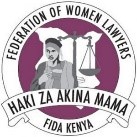 International Federation of Women Lawyers (FIDA-Kenya)
International Federation of Women Lawyers (FIDA-Kenya)
FIDA Kenya has published a video entitled ‘How to avoid a panic attack: Wellness tips during the COVID-19 pandemic’. This in response to the increasing mental health concerns in Kenya that are fuelled by the general economic and

FIDA Kenya has published a video entitled ‘How to avoid a panic attack: Wellness tips during the COVID-19 pandemic’. This in response to the increasing mental health concerns in Kenya that are fuelled by the general economic and social uncertainty propelled by isolation and quarantine. This is in addition to the rising cases of sexual and gender-based-violence reported during the quarantine period of COVID-19. FIDA-Kenya is offering support and has set up a toll-free line 0800720501 for legal and psychosocial support during the pandemic.
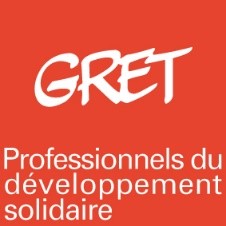 Groupe de recherche et d’échanges technologiques (GRET)
Groupe de recherche et d’échanges technologiques (GRET)
While the Covid-19 epidemic is spreading in most countries throughout the world, GRET and its teams are adapting their activities to continue supporting the most fragile populations, in a context of great uncertainty.

While the Covid-19 epidemic is spreading in most countries throughout the world, GRET and its teams are adapting their activities to continue supporting the most fragile populations, in a context of great uncertainty.
GRET and its teams are supporting the most vulnerable populations by focusing on prevention and awareness creation. GRET has produced a brochure that gives an overview of the main actions carried out over the last months in their different countries of intervention.
Here is more information about how GRET is adapting its field projects and preparing future actions in the context of COVID-19.
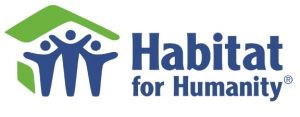 Habitat for Humanity International (HfHI)
Habitat for Humanity International (HfHI)
The HfHI CEO has issued a statement acknowledging that the vulnerable in society would be most affected by the COVID-19 pandemic. The statement also outlines HfHI’s priority to protect the people and

The HfHI CEO has issued a statement acknowledging that the vulnerable in society would be most affected by the COVID-19 pandemic. The statement also outlines HfHI’s priority to protect the people and communities they serve, and this entails pausing of some of their activities. A blog post, COVID-19: Housing at the Center , has been published, underlining the need for housing to be at the centre of HfHI’s response to the pandemic and in the post COVID-19 era. The blog explores the dilemma of implementing social distancing in the slum areas and proposes several solutions, citing the measures outlined by UN-Habitat on mobilizing governors and mayors to play a central role in preventing the pandemic from spreading in urban areas while ensuring their cities continue to “provide food supplies, support to the most vulnerable and access to health care.”
 Habitat International Coalition (HIC)
Habitat International Coalition (HIC)
The HIC president has given the insights of the coalition in the COVID-19 crisis and beyond in a published presentation. HIC has been working on three fronts: creating spaces for dialogue and learning to make sense of what this emergency means for the most

The HIC president has given the insights of the coalition in the COVID-19 crisis and beyond in a published presentation. HIC has been working on three fronts: creating spaces for dialogue and learning to make sense of what this emergency means for the most vulnerable; supporting exchanges and documenting localized responses to the crisis; and, focusing on advocating for the radical changes required. HIC proposes the following actions: putting numbers to the under-recorded impacts of the crisis, especially those due to pre-existing inequalities; acknowledging that ‘equal protection’ does not mean ‘same protection’ because blanket measures are likely to be ineffective hence the need for contextualized responses (this applies to gender because COVID-19 disproportionately affects women and girls); prevention of further stigmatization and marginalization; and human rights protection should be at the centre of pandemic and post-pandemic responses.
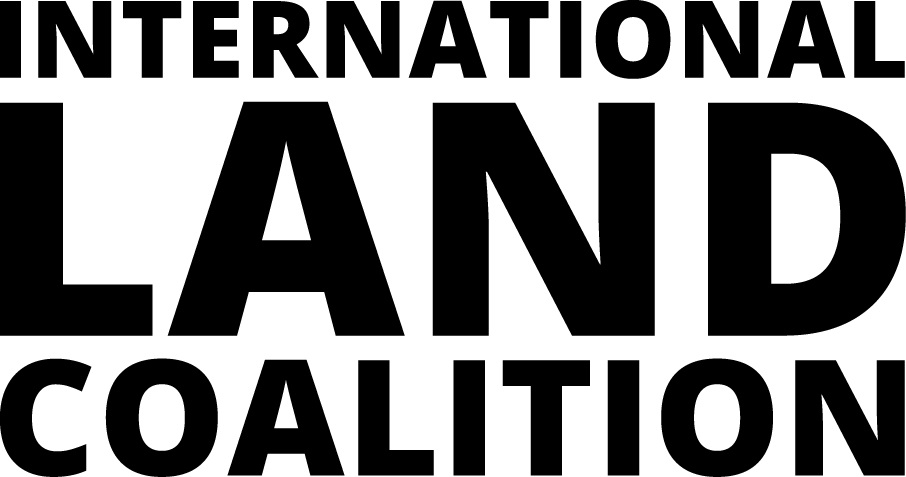
International Land Coalition (ILC)
The ILC has published an opinion piece entitled ‘Land and environmental defenders sitting ducks, while world goes into lockdown’. The opinion piece notes that in the midst of the world’s lockdown, there are still land grabbers and investors looking to take
 The ILC has published an opinion piece entitled ‘Land and environmental defenders sitting ducks, while world goes into lockdown’. The opinion piece notes that in the midst of the world’s lockdown, there are still land grabbers and investors looking to take advantage of the situation. The article is dedicated to celebrating land and environment defenders, who stand at the front line to defend their land and territories from corporate or state abuse and unsustainable exploitation.
The ILC has published an opinion piece entitled ‘Land and environmental defenders sitting ducks, while world goes into lockdown’. The opinion piece notes that in the midst of the world’s lockdown, there are still land grabbers and investors looking to take advantage of the situation. The article is dedicated to celebrating land and environment defenders, who stand at the front line to defend their land and territories from corporate or state abuse and unsustainable exploitation.
 Legal Action Worldwide (LAW)
Legal Action Worldwide (LAW)
LAW has published a Legal Action Worldwide Response to COVID-19 which considers the influence of the pandemic on human rights and gender. LAW notes that COVID-19 is not ‘The Great Leveller’ and its impact is not

LAW has published a Legal Action Worldwide Response to COVID-19 which considers the influence of the pandemic on human rights and gender. LAW notes that COVID-19 is not ‘The Great Leveller’ and its impact is not gender neutral since it is having a differential impact on women and girls, as well as those with intersectional identities and experiences. It notes that social distancing presumes that the home is a safe place for all yet for far too many people being at home means a heightened risk of violence and abuse. LAW in collaboration with partners have published a how-to guide helping lawyers continue to provide essential legal services to GBV survivors during COVID-19.
 NAMATI
NAMATI
NAMATI in partnership with the Pathfinders for Peaceful, Just and Inclusive Societies has published a new brief “Grassroots Justice in a Pandemic: Ensuring a Just Response and Recovery” that focuses on ensuring a just COVID-19 response and recovery. This brief provides recommendations for policymakers, donors and multilateral institutions

NAMATI in partnership with the Pathfinders for Peaceful, Just and Inclusive Societies has published a new brief “Grassroots Justice in a Pandemic: Ensuring a Just Response and Recovery” that focuses on ensuring a just COVID-19 response and recovery. This brief provides recommendations for policymakers, donors and multilateral institutions on how to finance and protect grassroots justice defenders during and after the pandemic. Doing so will help the world to mount a just and equitable response to and recovery from the global crisis. These recommendations have since been strengthened with concrete examples submitted by members of the Global Legal Empowerment Network through the COVID-19 Justice Challenge to help seek support that truly reflects the needs of grassroots justice groups around the world.
 Oxfam International
Oxfam International
The organization has published ‘Oxfam’s response to coronavirus’, a one-stop-shop source of information about the virus, symptoms, transmission and treatment. Oxfam is mobilizing to prevent the spread of

The organization has published ‘Oxfam’s response to coronavirus’, a one-stop-shop source of information about the virus, symptoms, transmission and treatment. Oxfam is mobilizing to prevent the spread of coronavirus and save lives through water, sanitation and hygiene initiatives that are vital for the management of infections. The organization is prioritizing support to the most vulnerable people, especially those in higher-risk environments such as refugee camps or crowded urban areas. Oxfam teams are increasing the delivery of clean water, sanitation services such as handwashing facilities and hygiene materials like soap. It is working with communities on hygiene awareness, helping to ensure access to food and other essentials, and getting cash to those most in need.
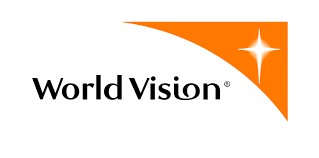 World Vision
World Vision
The President of World Vision has reached out to partners to support their efforts as they upscale their activities in the lights of COVID-19. In the US, World Vision is

The President of World Vision has reached out to partners to support their efforts as they upscale their activities in the lights of COVID-19. In the US, World Vision is working closely with churches and school districts to distribute family emergency kits containing food, hygiene and educational supplies for the children. So far, 300,000 meals and 180,000 pieces of personal protective equipment (PPEs) have been distributed to frontline workers. Abroad, World Vision has distributed 300,000 pieces of PPEs to health workers and reached 5.4 million people with awareness and training activities on how to protect themselves. World Vision is trying to reach 72 million people including 36 million children in the US and abroad.
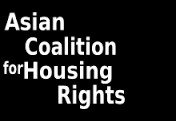 Asian Coalition for Housing Rights (ACHR)
Asian Coalition for Housing Rights (ACHR)
The coalition has published the special April 2020 edition of the ‘ACHR e-news’ newsletter to share inspiring stories of how the partners from the region are coping with the COVID-19 pandemic. ACHR recognizes that although there is talk about the virus being ‘the great equalizer’

The coalition has published the special April 2020 edition of the ‘ACHR e-news’ newsletter to share inspiring stories of how the partners from the region are coping with the COVID-19 pandemic. ACHR recognizes that although there is talk about the virus being ‘the great equalizer’ affecting all social classes, people’s capacity to cope with the virus and its repercussions has much to do with conditions that are not only medical but also economic, social and political and that the people dying of COVID-19 are more likely to be poor and uninsured, more likely to suffer from bad and chronic health problems, more likely to have no savings or safety nets, more likely to be unable to afford health care, and more likely to live in shoddy and crowded housing conditions where precautions like social distancing and frequent hand washing are impossible.
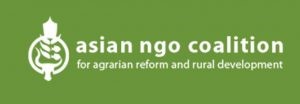 Asian NGO Coalition for Agrarian Reform and Rural Development (ANGOC)
Asian NGO Coalition for Agrarian Reform and Rural Development (ANGOC)
Asia has been hit hard by the COVID-19 crisis with farmers and other rural stakeholders struggling to sustain their livelihoods and facing threats of food insecurity. Fortunately, there has been no shortage of civil society

Asia has been hit hard by the COVID-19 crisis with farmers and other rural stakeholders struggling to sustain their livelihoods and facing threats of food insecurity. Fortunately, there has been no shortage of civil society action with ANGOC members responding to people’s needs during COVID-19 crisis. All these across ANGOC members highlight the ingenuity of land rights CSOs in persevering to help communities during extraordinary circumstances. While the world continues its battle against the virus, ANGOC continues to advocate for secure land rights which will lead to better food security and greater adaptive capacity during pandemics such as this one.
In September 2020, ANGOC released a statement on protecting land rights and ensuring food security in the time of COVID-19. Members of the ANGOC network called for immediate actions from the global community, national governments, and civil society in resolving the systemic inequities that render people susceptible to the effects of the global pandemic. The network called for a restructuring of the food system, asserting that secure land rights for all will be integral to achieving food security in a post-COVID-19 world. The full statement is available here in English, Bahasa, Bengali, Hindi, Mandarin, Nepali, Sinhala and Tamil.
 The Land Portal
The Land Portal
The Land Portal has established a Land and COVID-19 Hub that brings together key debates, information by country as well as news, blogs, events and publications.
 The Land Portal has established a Land and COVID-19 Hub that brings together key debates, information by country as well as news, blogs, events and publications. The Land Portal has co-organized a Webinar and Discussion Series on the Land Rights Implications of COVID-19. The Land Portal is open to collaborating with GLTN Partners on COVID-19 related issues. Contact the Land Portal Foundation Team Leader at laura.meggiolaro@landportal.info
The Land Portal has established a Land and COVID-19 Hub that brings together key debates, information by country as well as news, blogs, events and publications. The Land Portal has co-organized a Webinar and Discussion Series on the Land Rights Implications of COVID-19. The Land Portal is open to collaborating with GLTN Partners on COVID-19 related issues. Contact the Land Portal Foundation Team Leader at laura.meggiolaro@landportal.info
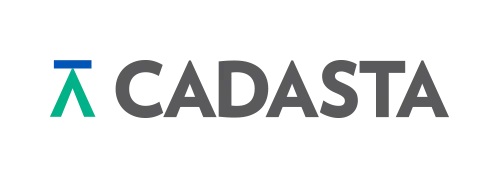 Cadasta Foundation
Cadasta Foundation
Cadasta Foundation is providing technical assistance, geospatial platform, survey tools, and data visualization and analytics tools to help partners from around the world plan, manage, and track COVID-19 response
 Cadasta Foundation is providing technical assistance, geospatial platform, survey tools, and data visualization and analytics tools to help partners from around the world plan, manage, and track COVID-19 response efforts. Go to the blog ‘Supporting our Global Partners during the COVID-19 Pandemic’ for a summary of some of the COVID-19 related projects and partners we are supporting.
Cadasta Foundation is providing technical assistance, geospatial platform, survey tools, and data visualization and analytics tools to help partners from around the world plan, manage, and track COVID-19 response efforts. Go to the blog ‘Supporting our Global Partners during the COVID-19 Pandemic’ for a summary of some of the COVID-19 related projects and partners we are supporting.
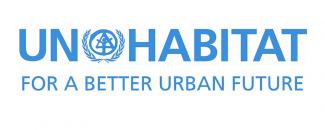 UN-Habitat
UN-Habitat
UN-Habitat is responding to a growing volume of requests from both national and local governments to help them prepare for, prevent, respond to and recover from the COVID-19 pandemic.
 UN-Habitat is responding to a growing volume of requests from both national and local governments to help them prepare for, prevent, respond to and recover from the COVID-19 pandemic. Building on more than 40 years of urban experience, much of it in humanitarian situations, it is focusing on the city-level response to the crisis. The Agency is leveraging its extensive network of partners on the ground, bringing together mayors, governors, transport and utilities providers, urban NGOs, women’s and youth groups, and slum-dweller community organizations in the response to Covid-19 crisis. Read more on ‘UN-Habitat’s COVID-19 Response Plan’
UN-Habitat is responding to a growing volume of requests from both national and local governments to help them prepare for, prevent, respond to and recover from the COVID-19 pandemic. Building on more than 40 years of urban experience, much of it in humanitarian situations, it is focusing on the city-level response to the crisis. The Agency is leveraging its extensive network of partners on the ground, bringing together mayors, governors, transport and utilities providers, urban NGOs, women’s and youth groups, and slum-dweller community organizations in the response to Covid-19 crisis. Read more on ‘UN-Habitat’s COVID-19 Response Plan’
Meanwhile, the Palestinian Land and Water Settlement Commission (LWSC) with the support of UN-Habitat under the framework of the EU-funded programme “Achieving Planning and Land Rights in Area C, West Bank – Palestine (2019-2023)”, has also prepared a Recovery Plan to respond to the impacts of the COVID-19 pandemic. Read more on ‘Palestinian Land and Water Settlement Commission Recovery Plan from the COVID-19 Pandemic‘
Latest Related COVID-19 Network News
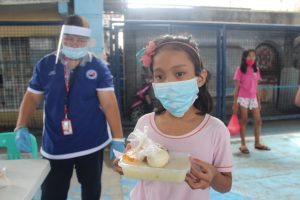
How communities in the Philippines are using community-driven data to implement evidence-based responses to the COVID-19 pandemic
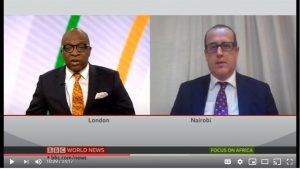
Interview: Evictions and demolitions during the COVID-19 pandemic and the human rights perspective for victims
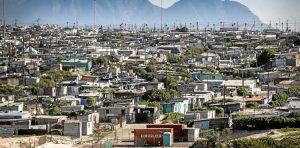
OPINION: How the COVID-19 pandemic is helping South Africa’s informal settlements hold the government to account
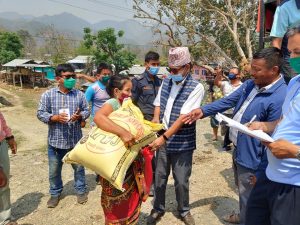
Nepal’s Belaka Municipality uses STDM to identify vulnerable families during COVID-19 pandemic